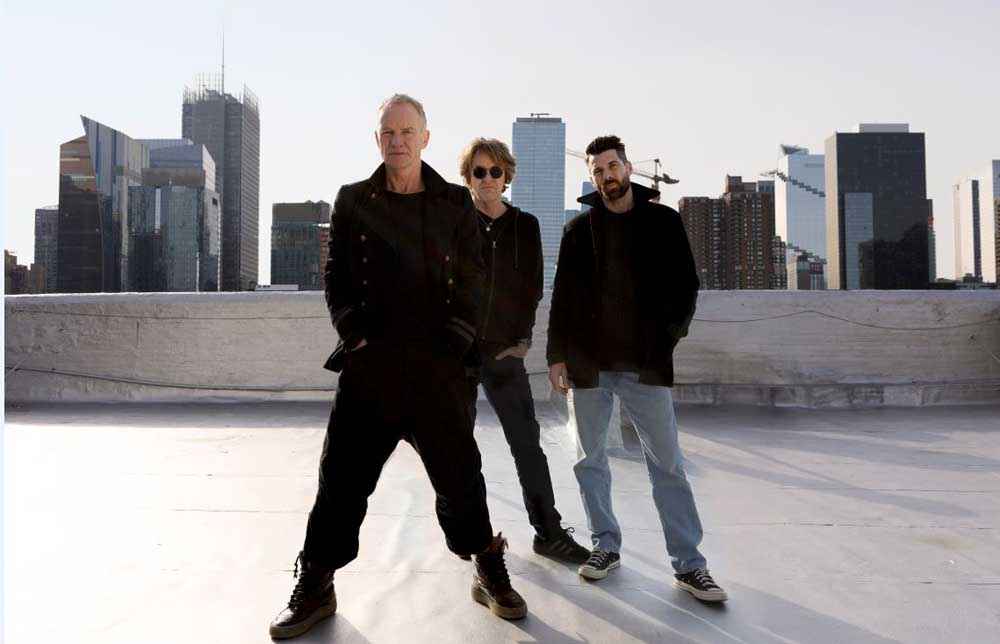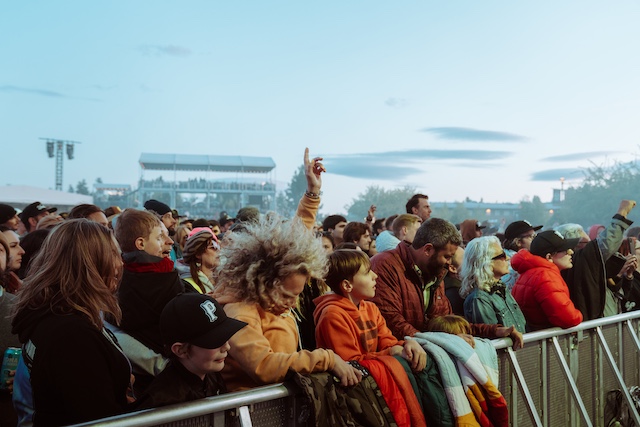Dropping In: If you love something, why would you let it go?
Published 3:00 pm Wednesday, December 25, 2024

- Sting performs May 25 and 26 at Hayden Homes Amphitheater.
The Police were among the bands I really dug as a teen. I came to appreciate them more as I got older, after they had broken up. On their early albums, the band was punk rock adjacent, a virtuosic power trio who gave the world “So Lonely,” “Can’t Stand Losing You,” “Regatta De Blanc” and a lot of others I still queue up from time to time.
Frontman Sting later decried their biggest hit, “Every Breath You Take,” as being ”sinister,” as in stalkerish. But to me as a 17-year-old, the sentiment of his first solo single, 1985’s “If You Love Somebody Set Them Free,” seemed a lot more sinister than “Every Breath You Take.”
“Look, I don’t even have a girlfriend, Sting, but supposing I did, why exactly would I intentionally try to get rid of her?” my young self wondered.
Sting set to perform May 25, 26 in Bend
The notion of trying to huck love like some kind of boomerang seemed facile and pretentious. I was completely certain that any girl who deigned to reciprocate my affections would wise up the second she escaped my orbit. Absent the privilege Sting’s talent, wealth and fame might afford, any relationship I could see myself entering would be far too precarious for such an experiment.
Of course, there is a fuller version of the saying that predates the song. It’s sometimes attributed to Richard Bach, author of “Jonathan Livingston Seagull,” but no one seems to know where it comes from: “If you love something, set it free. If it returns to you, it comes back, it was meant to be. If it doesn’t, it was never meant to be.”
I still have some doubts about it, and I’m sure someone will argue with me because people argue about everything now, but before you do, this is just my long way of saying I kind of get it when I apply the idea to “something” instead of “somebody” like in Sting’s song. This came to mind when I was thinking about the little events that led to my occasional departures from and returns to skateboarding.
Way back in the early ‘80s, I got into skateboarding during one of its sallow periods. After achieving fad status in the 1970s, skating went underground. Thrasher Magazine was the bible, and in 1983, its pages chronicled punk rockers in thrift store garb skating dirty concrete ditches, janky DIY halfpipes and abandoned concrete skateparks. This stuff was intoxicating to a 15-year-old. In Miami in 1983, it took work to even find a modern skateboard. Once I did, all I wanted to do in my free time was skateboard. My friends and I built larger and larger ramps. Skating provided everything I needed: exercise, socialization, carpentry, personal boundary pushing, crash test dummy testing, mirth. It was humbling, freeing and identity forming.
Though I tried, I couldn’t stay a kid forever, and for reasons including work, travel, moves and raising a family, I more than once strayed from skateboarding for several years at a time. I never meant to. I’m certain there are plenty of, say, paddlers and cyclists whose breaks from their vessels and bikes somehow grew from a day or two off into a year or two off.
My first year living in Bend, I actually met a couple of skaters who got me back on my board. We would meet and skate the Redmond Skatepark on weekends, and a few times we met and skated the original Ponderosa Skatepark on long lunch breaks. There was even a mini ramp two doors down from the house we rented on Fresno Avenue.
I lost touch with skating again in 2002. My twin daughters, Lilly and Lucy, were born; the neighbor’s ramp got torn down; and my friends moved away. I skated Redmond another time or two alone the summer of 2003, but it wasn’t the same.
As luck had it, around 2007, I met someone with a disassembled mini ramp in his yard. I helped him rebuild it and skated it a couple of times. When I turned 40 the next year, I began to sense time running out, and skateboarding came back to me in a big way.
During those multi-year periods away, I’m sure I thought I was getting too old. Ironically, other people said it more often when I was younger: “Aren’t you getting too old to skateboard?”
Fortunately, if our culture is improving in any way at all, it’s in a mind-your-own-business fashion. Plus, our perceptions of how long one can skate are evolving. Tony Alva, the first famous skateboarder to be a household name, is 67 and still skating.
There is a hard-to-find video clip I love of another pro from Alva’s generation, Duane Peters, about the way skateboarding has been there for him. It’s from an interview in the special features of “Bones Brigade,” a 2012 documentary in which he’s asked “What is that primal thing in you … when you get on that board?”
Peters, who was raised by a single parent as a kid and fell into drug addiction and the criminal justice system at points after his pro skating career, immediately fights back tears. He gives an honest, incredible answer, condensed a bit here: “It’s the freest feeling you could ever, ever have in this third-dimensional world. I’ve never ever felt so free than when I’m rolling on my board. No matter how much I’m locked up, all the rocks that you get hit by and everything, man, I can’t tell you how many times, to get through all the bulls–t and to see my board there. It’s the only thing I understand. And to grab it and be able to just jump on it is the freest I’ll ever feel while I’m in this body. I know it. It gives me a sense of me. I don’t know how to describe it, and I’m so lucky that I’ve got that.”
Me too, Duane. Me too.






